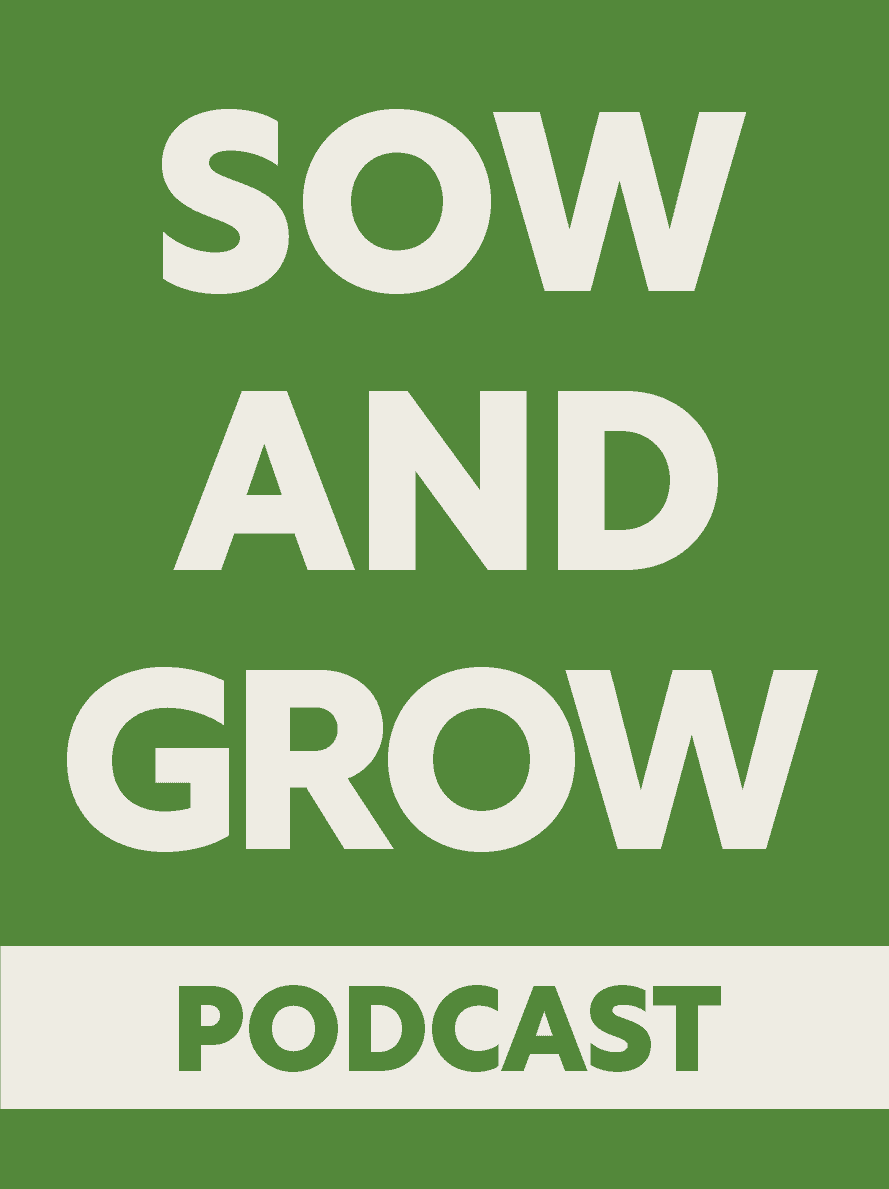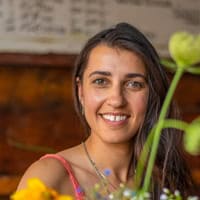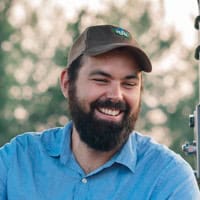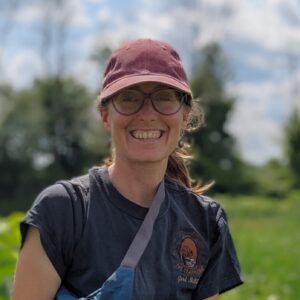Welcome to SOW & GROW
Sow and Grow is a podcast by young farmers exploring the forces that shape Canadian agriculture and the solutions needed to build a more just and ecologically sustainable food system.
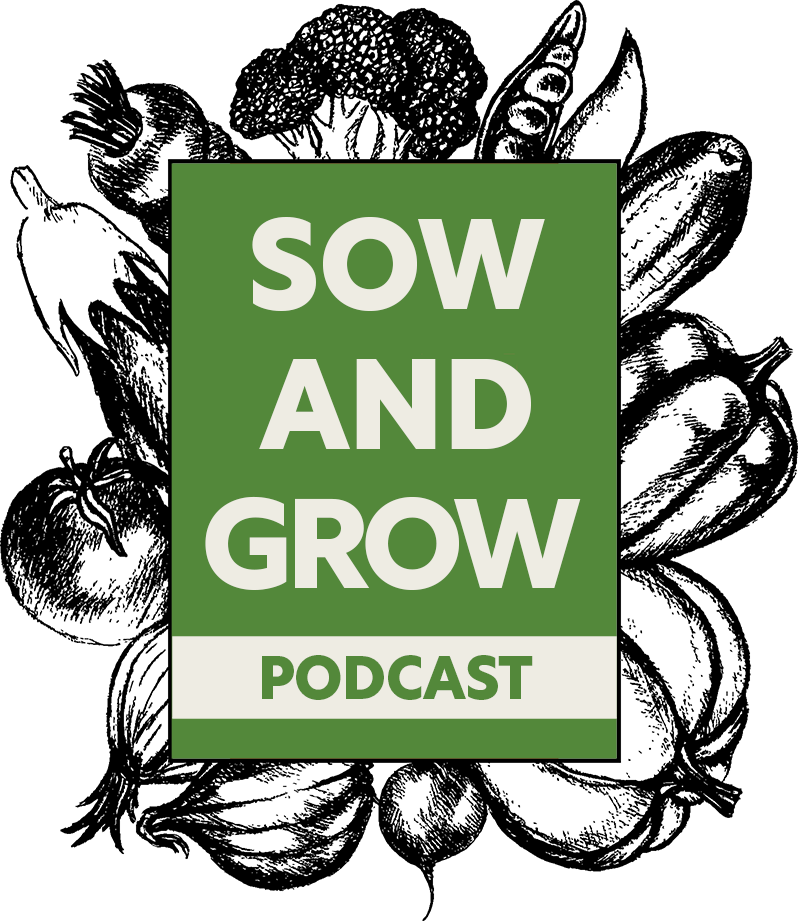
series
podcast Team
Madeline (Maddie) Marmor
Co-Host/Producer
Maddie is a landless farmer born in downtown Toronto. She has been farming for the past 8 years on farms throughout Ontario and has grown food on the current and traditional lands of the Houdensaunee, Anishinabewaki, Attiwonderonk, Mississauga, Odawa, Wendake-Nionwentsïo, Petun, Saugeene – Ojibiway nations. Over the years she has come to recognize the privilege and political significance of farming on stolen land, knowledge which has informed her dedication to food sovereignty and agroecology. She is an active member of the National Farmers Union, sits on the North American Nyéléni Coordination and accompanies systems change in food spaces as an adult education facilitator.
Aliyah Fraser
Co-Host/Producer
Aliyah is a Kitchener-based farmer who owns and operates a quarter acre market garden called Lucky Bug Farm on rented land in Waterloo Region where she grows a variety of produce for a small CSA program. The farm operates within the Haldimand Tract in Kitchener, Ontario and is on the traditional territory of the Mississauga, Anishnabeg, Attiwonderonk (neutral) and Haudenoshaunee peoples. She imagines a food system where more people have access to ecologically grown food, where there is less waste and where there’s a better understanding of the labour it takes to get food from the farm to the table. Aliyah also has an undergraduate degree in Environmental Studies in Urban planning from the University of Waterloo. She believes that food and housing are human rights. She lives in Kitchener, Ontario with her partner Thomas and cat Frankie.
luckybugfarm.com | @luckybugfarm
Stuart Oke
Co-Host/Producer
Stuart is a young farmer from Eastern Ontario who, alongside his partner Nikki, owns and operates Rooted Oak Farm, a 12 acre organic vegetable and cut flower farm. After years of renting land Rooted Oak in 2020 relocated to Eastern Ontario, and the traditional territory of the Anishinabek, Huron-Wendat, Haudensaunee and Oneida Peoples. In addition to loving food and taking pride in growing food that sustains people, the farm was founded on the idea that farming is a political act, one capable of creating great change.
www.rootedoak.ca | @rootedoakfarm
Kate Garvie
Editor/Producer
Kate founded Heartbeet Farm in 2018 after spending four years working on organic vegetable farms across Ontario. She first learned about ecological agriculture at Trent University during her undergraduate degree. After completing a Master’s of Environmental Studies, Kate returned to farming with a better understanding of the connections between food sovereignty, indigenous solidarity and climate justice. She is passionate about building a local food system that is environmentally sound and socially just.
Equity statement
Canada is only one of the nations that call this land home. We are a core team here of 4 farmers who grow and live on the current and traditional lands of many different Indigenous nations to this land, who have their own food systems and value system when it comes to food and growing.
The nation of Canada, and the Canadian food system, exist on lands stolen from these Indigenous nations and peoples. The process of colonization on this land, sometimes referred to as the ‘colonial project’ is ongoing. The development of the Canadian agricultural system throughout history has been a key component of genocidal policies intended to eradicate Indigenous peoples, including the destruction and outlawing of traditional Indigenous food systems and the removal of Indigenous peoples from what we now call “Canadian farmland”.
As farmers, we have benefited from the theft of this land. As farmers, we also have a unique relationship with the land and a responsibility to care for it. Because of this, we believe we are uniquely and powerfully positioned to educate ourselves and our communities on our history and to support and build solidarity for a more just and equitable future food system.
